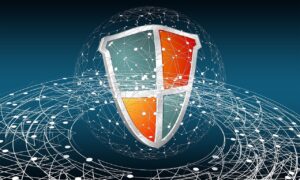The role of solid cybersecurity for small businesses must be considered. Having the proper in-house IT support for small businesses can provide a strong defense against a wide range of today’s cyber threats. Let’s see why in-house IT security is necessary for small business safety.
Understanding the Threat Landscape
Attacks on small businesses are becoming increasingly common. In contrast to big organizations that are good at busting data leaks and hacking, small entities are likelier to become hackers’ targets due to their limited budget for cyber defenses. The in-house IT team with deep experience in the latest cybersecurity threats should develop specialized security systems targeting particular threats that may emerge to damage the business.
Proactive Monitoring and Rapid Response
Aggressive and continuous monitoring of the IT systems is of utmost necessity so that the organization can quickly identify and defend itself against threats. The on-site IT team is always alerted to any possible security threat, which is immediately dealt with, thus saving any significant damage or information loss.
Customized Security Protocols
The one-size-fits-all approach only works for the businesses’ security. An in-house IT team can develop tailored security means appropriate to the business’s circumstances and situation. This custom-tailoredlored approach allows for a more robust and precise defense against cyber risks.
Employee Education on Cybersecurity
Human factors remain one of the crucial vulnerabilities in security concepts. This can be achieved by conducting continual training sessions utilizing an in-house IT team, thus lowering the risk. Through cyber-awareness training of employees, businesses would become firmer and more robust against cyber attacks.
Ensuring Up-to-Date Systems
The chance to hack old software is one of the most favored measures of cybercriminals. An in-house IT team is mainly tasked to keep the business’s systems updated with the latest security patches and updates and fill in gaps by closing the vulnerabilities that hackers could use for compromise.
Enhancing Capabilities with External Support
While in-house IT provides a solid foundation for small business IT support services can offer additional layers of protection. These external services complement in-house efforts with specialized expertise, advanced technologies, and additional resources. They can assist in areas such as 24/7 monitoring, advanced cybersecurity solutions, and additional technical support, providing an extra layer of security to help small businesses.
Tailoring Security to Fit Your Business
One of the vital aspects of having an in-house IT team is their focus on creating security strategies tailored to the company’s individual needs. Unlike one-size-fits-all solutions, a tailor-made approach factors in the particular risks, regulations, and market standards that may apply to your operation. It examines how a company’s in-house team analyzes risk, develops and executes custom security protocols, and devises strategies to address the ever-evolving dangers. Through regular risk assessments and integrating industry-specific security practices, businesses can ensure their defenses are as robust and effective as possible.
The Crucial Role of Ongoing Employee Cybersecurity Education
Even with the most robust technological defense, the human element is still considered the weakest link in cybersecurity. This part examines how training and cyber awareness are integrated into ongoing business operations using in-house technical support to all employees. This component focuses on how routine, interactive training sessions can help reduce the likelihood of phishing attacks, various social engineering strategies, and common cyber threats. When you create a culture of cybersecurity consciousness in your company, the employees are the first line of defense against any potential online threats, making your general security much stronger.
Strategic Disaster Recovery Planning
The value of a strategic recovery and response procedure in case of emergencies should be considered. This section focuses on the activities of a dedicated operational IT team, which starts with designing full-scale disaster recovery plans that address the peculiarities of the company’s functioning. It comprises all the steps that involve choosing the crucial systems, allocating recovery time objectives, and providing clear information on the details of the data backup, system activity, and restoration. Enterprises may guarantee the most minor interruptions and sustain continual functions even during cyber attacks or other emergencies through the concluding preparations for the worst-case scenarios.
Leveraging External Expertise for Enhanced Security
While internal IT teams can provide a solid basis for cybersecurity, there are conditions where engaging external expertise can improve a business’s security strategy significantly. This part details some advantages of partnering with external information technology services, including access to specialized information technology knowledge, cutting-edge cybersecurity technologies, and the additional resources of 24/7 monitoring and incident response. It discusses how these partnerships can provide a more comprehensive security solution, offering the best of both worlds: the on-site technical support of an in-house IT team and the progressive features of an external provider.
Innovating While Staying Secure
Small businesses often adopt the latest digital tools and technologies in innovation and staying competitive. However, this drive for innovation must be balanced with security considerations. This section explores how in-house IT can play a pivotal role in ensuring new technologies are integrated safely into the business’s ecosystem. It emphasizes the importance of conducting security assessments before the adoption of new tools and maintaining a secure IT environment that supports innovation without compromising data integrity or compliance.
Building a Culture of Security Awareness
In addition to the technical aspects of cybersecurity, creating a culture of being aware is critical throughout the organization. This part will show how an in-house IT team can lead the charge in the working environment so that each employee is familiar with cybersecurity issues and their role in solving them. By providing regular training sessions, timely updates on the current risks of security, and compelling awareness campaigns, companies can significantly reduce the risk of incidents emanating from human error. Cultivating a culture of security awareness facilitates a proactive defense mechanism, thus involving the whole workforce in cyber security.
Conclusion
Small businesses face unique cybersecurity challenges. An in-house IT team, tailored to address these specific needs, provides a solid foundation with proactive monitoring, bespoke security protocols, and employee training. However, augmenting this with external IT support services brings additional expertise, cutting-edge technology, and 24/7 monitoring, creating a comprehensive defense strategy. This synergistic approach ensures businesses are prepared for current and future cybersecurity threats, safeguarding their operations and data. Embracing both internal and external IT resources is essential for small businesses aiming to navigate securely and successfully. For comprehensive cybersecurity solutions tailored to your small business, contact them today.



































